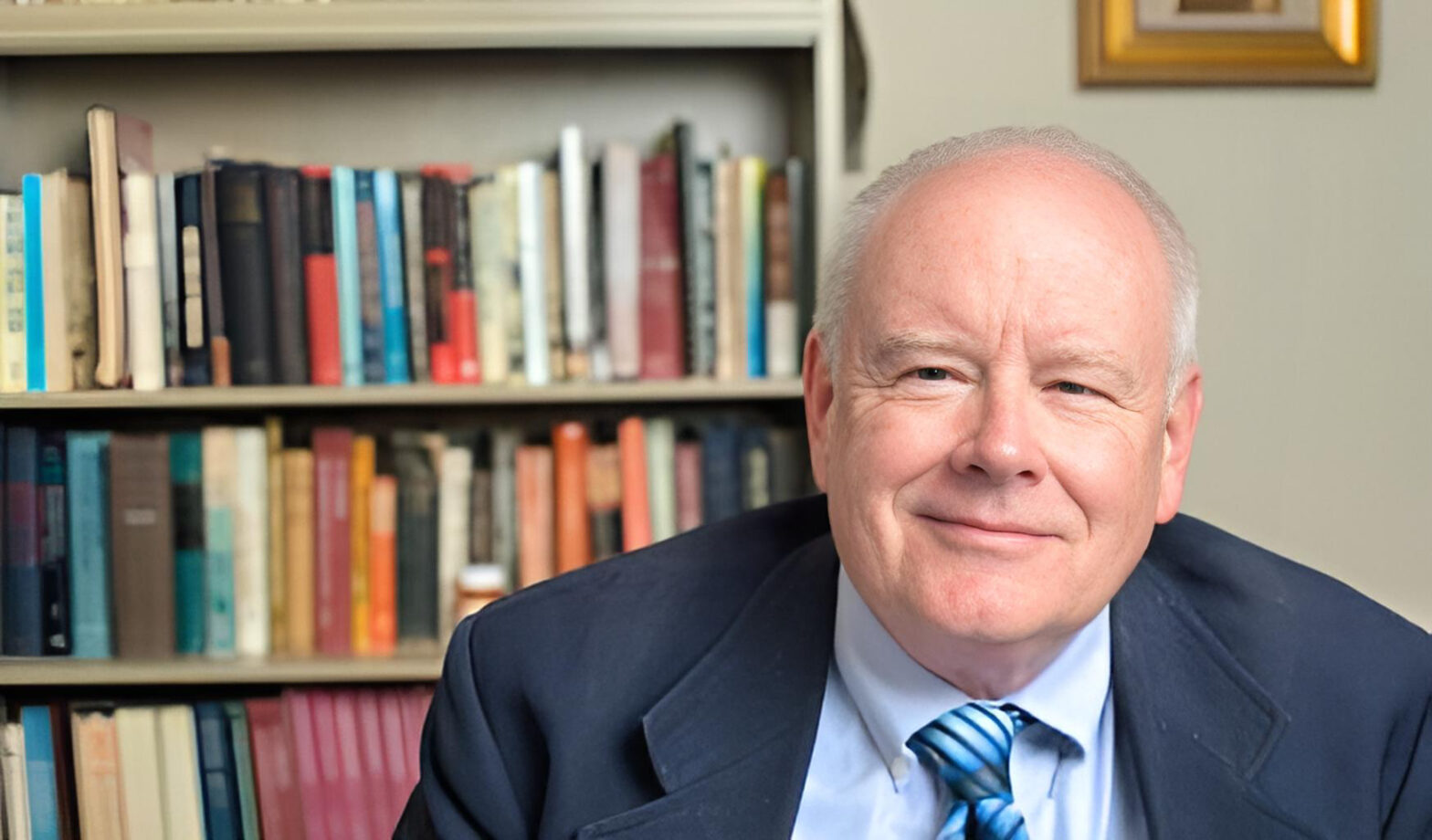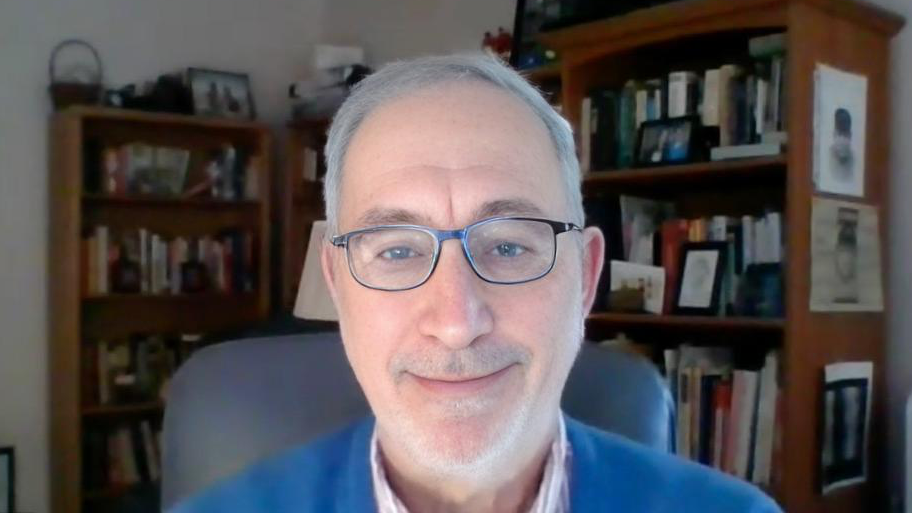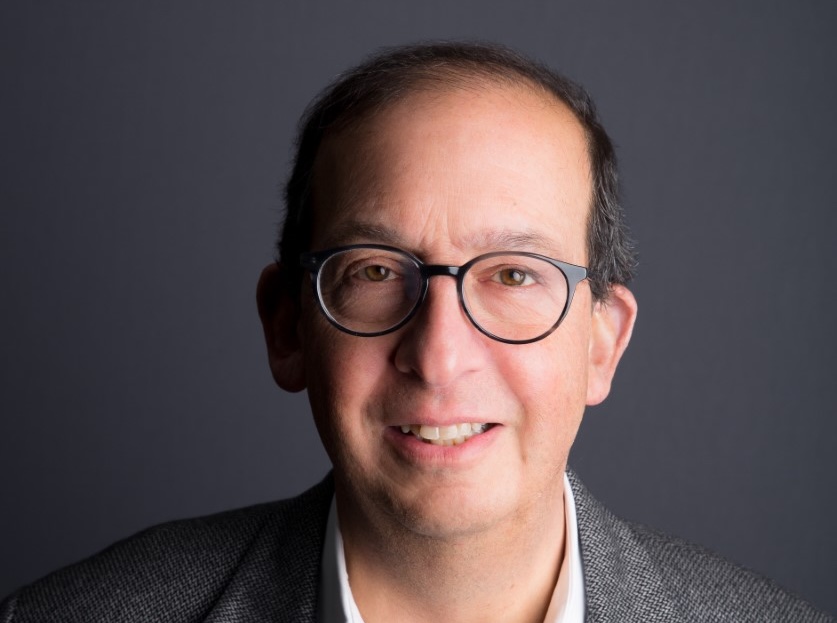The Ohio University professor emeritus talks to Michael E. Hartmann about whether tax-incentivization is a subsidy, the taxation of endowments in higher education, Milton Friedman’s 2003 e-mail to him about negative externalities in higher ed, whether there might also be negative externalities in philanthropy, and the taxation of endowments in philanthropy, as well as a little about the Ohio Bobcats’ football team.
Richard Vedder is a distinguished professor emeritus of economics at Ohio University in Athens, Ohio, and a senior fellow of the Independent Institute in Oakland. He previously has been an adjunct fellow of the American Enterprise Institute, an economist for the U.S. Congress’ Joint Economic Committee, and director of the Center for College Affordability and Productivity.
His scholarship has focused on macroeconomics, economic history, and the economics of education. His many books include 2004’s Going Broke by Degree: Why College Costs Too Much and 2019’s Restoring the Promise: Higher Education in America.
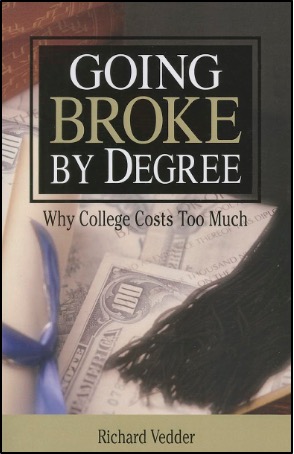
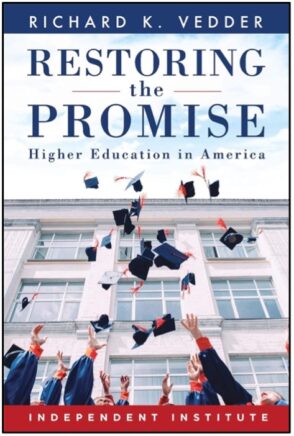
Timely topic
A Wall Street Journal op-ed by Vedder in December that caught our Giving Review eye began, “What can we do about the corruption of American higher education? Milton Friedman had an idea 20 years ago: Tax the schools rather than subsidize them.” In the article, Vedder quotes a 2003 e-mail to him from Friedman, then 91 years old. “I have not changed my view that higher education has some positive externality,” Friedman writes to Vedder,
but I have become much more aware that it also has negative externalities. I am much more dubious than I was … that there is any justification at all for government subsidy of higher education. The spread of PC [political correctness] would seem to be a very strong negative externality, and certainly the 1960s student demonstrations were negative externalities. … A full analysis along those lines might lead you to conclude that higher education should be taxed to offset its negative externalities.
According to Vedder, the “past 20 years have seen negative externalities multiply.” After listing several examples of them, he writes, “The case for taxing universities is stronger than ever.”
As Vedder notes, in 2017, Congress imposed a small 1.4% excise tax on the net investment income of large, tax-exempt, nonprofit endowments that only applies to some 35 wealthy private colleges and universities. In a 2021 article about Yale’s tax-exempt endowment, Vedder writes that even with the small excise tax, “still the tax benefits of its university status far exceed the costs.”
Earlier last month, U.S. Sen. J. D. Vance introduced a bill that would increase the excise tax on the endowment income of secular, private, nonprofit colleges with at least $10 billion in assets under management to 35%.
Talking incentivization and subsidization, exploring externalities and endowment taxation
To talk about these and related matters, Vedder was kind enough to join me for a conversation earlier this month. In the first part of our discussion, which is here, we talk about the academic study of economics overall and he briefly applies a basic, general economic concept or two in the context of charitable giving to higher ed.
In the second part—the just more than 15-minute video below—we discuss whether tax-incentivization is a subsidy, the taxation of endowments in higher education, Friedman’s e-mail to him about negative externalities in higher ed, whether there might also be negative externalities in philanthropy, and the taxation of endowments in philanthropy, as well as a little about the Ohio Bobcats’ football team.
“The magnitudes of some of these endowments has gotten so large that it becomes a question of public policy because there are tax advantages that donors receive in order to give to universities,” Vedder tells me. “[G]etting special public treatment by the tax” code,
in a sense, it is a subsidy. And so the question is, Well, why should we subsidize Harvard University when we have poor people who deserve it more than the people that go to Harvard? I mean, this is an argument, an equity argument, that some people will use and it has some validity to it.
Recently, “the political dynamic has changed, the political calculus has changed, and so there are congressmen who 10 years ago, 20 years ago, would’ve been dead set against an endowment tax are now in favor of it,” he says.
“I have actually shown some reservations about endowment taxes. They have a lot of problems associated with” them, Vedder later notes.
Picking on endowments is cherry-picking a group of schools” that “at the moment is just two or three dozen, and maybe that’s not the appropriate approach. If you want to tax a university, maybe you ought to tax their property instead, or maybe you ought to tax their sales of football-game tickets. … There are other ways you can attack this problem.
As for Friedman, after recognizing that he “certainly didn’t have the advantage, maybe disadvantage, of knowing all that has happened since” the ’03 e-mail.” Vedder speculates that Friedman “would be very concerned about higher ed and he would favor some sort of taxation of universities, whether an endowment tax or not. I’m not sure that would be the way he would go, but I think there’s a chance he would be in favor of a big endowment tax.”
In answer to a question about whether there might be endowment-related negative externalities in philanthropy, too, Vedder says, “As one who’s taught at both expensive private schools with big endowments and small public schools with poor endowments, I can see how endowments could lead to some laziness, some lack of attention to” detail.
“I think it’s wonderful that people contribute to schools,” Vedder concludes. Indeed, “one of the strengths of American higher ed, compared with higher ed in most places in the world is American higher ed has this private philanthropic” support. “I think this is a strength of America. So I’d hate to see that die, but on the other hand, it is legitimate to raise questions about it.”

